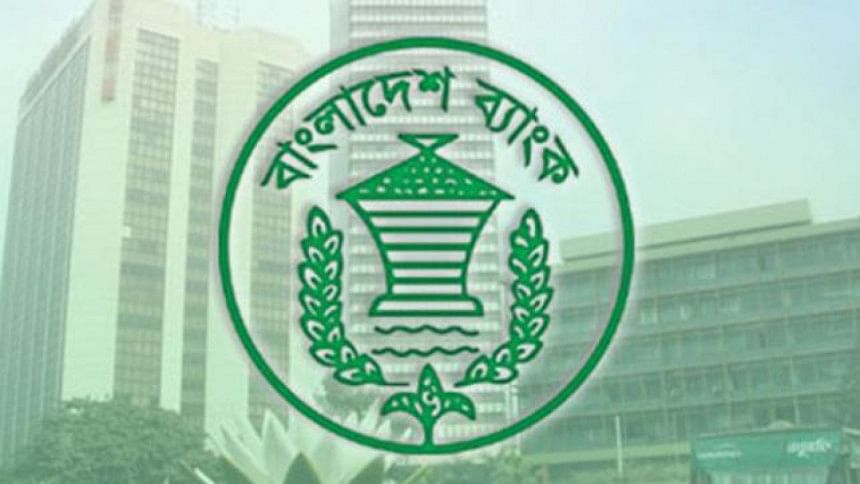Higher borrowing may fan inflation

The government will depend heavily on borrowing from Bangladesh Bank to manage its budget deficit in the next fiscal year amid the tax authority's continuous failure to generate adequate revenues, a reliance that may stoke inflationary pressures and worsen the current economic volatility.
In Bangladesh, tax revenue remained among the lowest in the world at an estimated 7.6 percent of the GDP in 2021-22. And the National Board of Revenue (NBR) is again staring at failing to achieve the tax generation target in the current fiscal year, ending in June.
If the possibility turns into reality, this would the 11th consecutive year that the tax authority will not achieve the goal set by the government.
Amid the continuous lower-than-expected revenue collection, the government has been forced to turn to the central bank and commercial banks to borrow funds in order to meet the deficit.
The government has already taken up a large volume of loans from the central bank this fiscal year and the borrowing trend is expected to continue in 2023-24 as well, as it will look to implement development projects leading up to the national election to be held early next year.
The higher borrowing from the Bangladesh Bank has already created an unstable situation for the entire economy and the scenario will get complicated if the trend persists since such borrowing leads to an injection of fresh money into the market.
The government has set a deficit financing target of Tk 261,785 crore for 2023-24. Of the amount, Tk 132,395 crore will come from the banking system.
The proposed deficit is 5.2 percent of the GDP for FY24, compared to 5.1 percent in FY23 and 4.6 percent in FY22.
Between July 1 and May 24, the government took loans to the tune of Tk 85,024 crore from the banking sector. Of the sum, Tk 69,208 crore came from the BB.
Owing to the fund injection, the volume of notes and coins in circulation is increasing. In Bangladesh, this money can multiply by as much as five times. So, the Tk 69,208 crore may end up being Tk 346,040 crore.
This extra money in the hands of people will create an additional demand for goods, which, will in turn drive up prices and fuel inflation, which came within a whisker of a decade high in April.
And there is a possibility that the government may miss its goal of mobilising funds from external sources as well.
The government has aimed to take loans amounting to Tk 102,490 crore in FY24 from foreign sources to finance the deficit. But it could not manage such a large amount of funds from abroad in the past.
It took foreign loans worth Tk 65,021 crore in FY22 and has set a borrowing target of Tk 83,819 crore for FY23.
"If the government can't manage its required funds from abroad, it will be compelled to take loans from the banking system," said Ahsan H Mansur, executive director of the Policy Research Institute of Bangladesh.
If the government fails to pull off the revenue generation target in 2023-24, it will have to cut expenditures. Otherwise, the deficit will widen further, Mansur said.
But a massive cut in spending may not be possible ahead of the general election.
Current trends hint that the government may continue its reliance on the central bank's money in FY24 since the interest rates on such loans are lower compared to the funds from other sources.
"But such borrowing will worsen the ongoing foreign exchange crisis," said Mansur.
This is because a higher money supply will accelerate demand for goods and services, which may raise imports, whose escalated level has been one of the key factors behind the economic crisis in Bangladesh since purchases from the overseas markets required US dollars.
An increase in imports will bring down the foreign currency reserve level, which has already fallen by 29 percent in the past one year.
"It seems that the overall macroeconomic situation is going to face a haphazard situation," Mansur said.
Zahid Hussain, a former lead economist of the World Bank's Dhaka office, says that the budget deficit may be likely to increase in the coming fiscal year given the election year.
"If the government borrows from commercial banks, the private sector, particularly micro and small businesses, will not get adequate loans. Then attaining the economic growth target will be difficult."
"If the government keeps its current trend of borrowing from the central bank, inflation will go up further and the current macroeconomic instability will worsen."

 For all latest news, follow The Daily Star's Google News channel.
For all latest news, follow The Daily Star's Google News channel. 



Comments